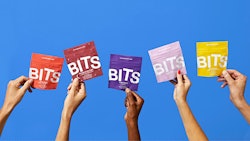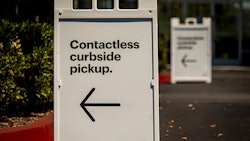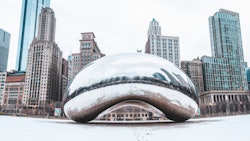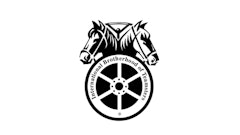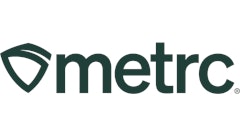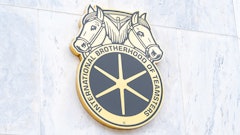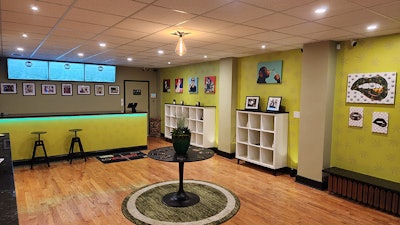
After a stint operating a cannabis business in Humboldt County, Calif., and several years working as a private consultant and breeder, Tom Wilson has returned to his hometown of Chicago to open a genetics bank to sell seeds and clones to the public as well as Illinois cannabis businesses and patients enrolled in the state’s medical cannabis program.
Executives at the company, MoneyTree Genetics, believe the business is able to transact with the public and the state-licensed cannabis space based on a letter the Drug Enforcement Administration (DEA) sent in January 2022 in response to an inquiry from Vicente Sederberg’s Shane Pennington on cannabis seeds’ legality; the DEA’s letter indicates that all cannabis seed that has a delta-9 THC concentration that does not exceed 0.3% is legal under the Agriculture Improvement Act of 2018, commonly called the 2018 Farm Bill.
MoneyTree’s retail store celebrated its soft opening in November, with a grand opening event to come.
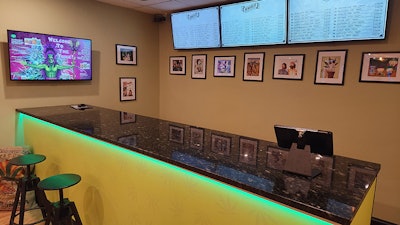
The company holds an industrial hemp processor license through the Illinois Department of Agriculture (IDOA) but does not hold a medical or adult-use cannabis business license with the IDOA or the Illinois Department of Financial and Professional Regulation (IDFPR), which regulates the state-legal cannabis industry.
According to a statement the IDFPR sent to Cannabis Business Times, “Adult registered qualifying patients may purchase cannabis seeds from a dispensary for the purpose of home cultivation. Seeds may not be given or sold to any other person. Dispensaries must obtain cannabis seeds from an Illinois registered adult-use cultivation center, craft grower, infuser, or another dispensary.”
Despite this state guidance, Wilson said it is his understanding that federal law supersedes state law, and therefore the letter from the DEA, “discussing cannabis seeds falling under the category of hemp,” is “what really gave the full go ahead on this business model,” Wilson told Cannabis Business Times.
In addition to the seeds sold by MoneyTree, the clones the company sells at retail contain less than 0.3% THC, and Wilson said the clones are all under five inches tall. (State law allows registered medical cannabis patients to grow up to five plants at home, and plants do not count toward the five-plant total until they reach five inches tall, he said.)
“For several years now, we’ve been sitting on the sidelines, watching the heavily funded big players capitalize the new white markets here in Illinois and [there is] an absolute onslaught of gray area operators using every possible loophole to produce, pedal and push consumable products that dodge cannabis regulations and taxes to which huge profits are made with little to no regulation,” Wilson said. “We decided to enter the space here in Illinois once we were absolutely certain our model was non-reliant [on] gray area operations, and it’s important for us to be as transparent as possible with our intentions and maintain authenticity in the genetics marketplace. We’re not just a couple guys looking to pop up and capitalize on some loopholes and disappear into the sunset when the game is over. We’re here to stay and plan to be a beacon for the community while maintaining ethical business practices along the way.”
The MoneyTree team has solicited the help of Greenspoon Marder LLP’s national Cannabis Law Group to ensure the company operates within legal limits. The firm oversees all aspects of MoneyTree’s business, Wilson said, from its formation and obtaining its hemp license from the IDOA to ongoing compliance and guidance with its business model.
“The DEA’s letter is a welcome surprise and another step in the right direction for the legal cannabis industry,” said Douglas Sargent, a partner in the Cannabis Law practice group at Greenspoon Marder and MoneyTree’s attorney. “Tom Wilson and MoneyTree Genetics should be commended for their diligence and operating in such a transparent way.”
“Our brick-and-mortar retail seed bank was specifically planned to open after federal law has permitted us to do so,” Wilson said. “We don't make the laws or break them. We happily follow the rules set forth, and the first part of our model starts with the 2018 … Farm Bill, which removed hemp from the U.S. [Controlled Substances Act] (CSA).”
The second major factor that allowed MoneyTree to launch its storefront, of course, was the DEA’s letter (read it here), which Wilson said clarified that the 2018 Farm Bill legalized any part of the cannabis plant, including the seeds, as long as they contain no more than 0.3% THC on a dry weight basis, thus abolishing the “Source Rule.”
The Source Rule “is a method used to evaluate the legality of a cannabis material based on where it comes from,” according to Above the Law; if it is derived from hemp, the material is considered legal under the 2018 Farm Bill.
“The DEA reached a conclusion that favors the cannabis industry and specifically our seed bank model,” Wilson said. “We say thank you to the DEA for defining what is part of the [CSA] and what is not, and seeds are no longer in question.”
While Wilson believes that the DEA’s clarification allows MoneyTree to operate, he said the storefront does not carry any consumable products, including delta-8 THC products.
“We also realize this is all new territory for both us and the various agencies within the state of Illinois,” he said. “Federal policy changes may take time to trickle down and be reflected within the state’s verbiage on related subjects that counties and cities refer to for guidance and may raise questions. Inside our business, we have a visibly posted set of documents on display covering everything from city, state, Department of Agriculture, legal representation, Agriculture Improvement Act of 2018, the DEA seed letter regarding the Controlled Substances Act specific to seeds and tissue cultures, and the USDA [U.S. Department of Agriculture] [statement] confirming [that the] legal import of seed from select countries around the world [is] permitted.”
Wilson added that he and his team would like to build a relationship with the IDOA to further integrate with the state’s cannabis industry.
“Ultimately what we would like to advocate for is a specialized license similar to a craft grow but specifically for the purpose of breeding and genetics propagation, which would strengthen the cannabis and hemp [industries] for the state in numerous ways by having genetics lines made in Illinois for Illinois licensed growers,” he said.
Wilson, whose cannabis journey began more than two decades ago, and his current business partners are working on breeding several cannabis varieties of their own but will not introduce their own genetics to MoneyTree’s retail outlet for another six to 18 months.
In the meantime, the store will carry 40 to 50 different brands of seed.
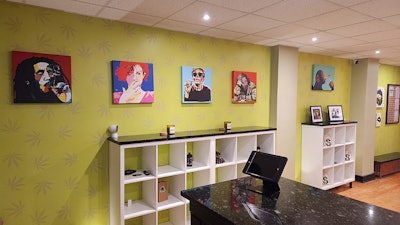
MoneyTree’s store is across from a hydroponics supply store, a location that Wilson waited an extra six months to secure.
“[The hydroponics stores has] been there [roughly] 13 years,” Wilson said. “They have a huge following, so they're doing a grand opening event and collaboration with us, and we’re doing all our events and shows together. Everybody that comes here, we kind of push across the street and give them coupons for discounts and vice versa.”
In addition to seed genetics from breeders from across the U.S. and abroad, MoneyTree offers in-store testing through a GemmaCert machine that the company carries as an authorized dealer. Other product offerings include feminizing hormone kits, hop latent viroid (HpLVd) test kits that provide mail-in lab results, books on breeding and genetics, and cannabis lifestyle clothing and merchandise.
The store also features authentic signed and framed photographs of Cheech & Chong, Mike Eppes and Mary Louise Parker.
“Our store is very unique and dripping in culture,” Wilson said. “We are ‘seed tenders’ who spend the necessary time with customers discussing many points of interest when selecting genetics. Education is the best form of sales in our opinion.”
The business model also includes working to become a pillar in the local community.
“We’ve closed one day so far since opening the doors to participate in the Chicago 10th annual turkey drive by donating turkeys and volunteering to distribute them at six different communities across the Chicagoland area,” Wilson said, adding that MoneyTree closed for an additional day during the holiday season to participate and volunteer in a local toy and winter jacket drive. The retail store accepted new, unwrapped toys and jackets for the collection and event.
If the business takes off in Chicago, Wilson plans to open two more retail locations.
“We see ourselves probably providing services to all the other licensed growers here in Illinois that are providing their product to the dispensaries,” he said.








